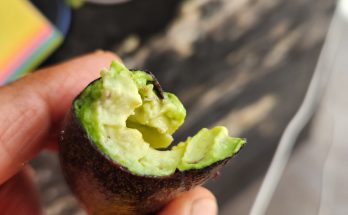By Juan Hernández
I am where I was:
I go behind the murmur,
footsteps inside me, ears with the eyes …
Excerpt from the poem “Pasado en Claro” by Octavio Paz.
The traditions that our parents proudly planted in us are now the roots that keep us rooted to the land where we were born and, in many cases, where we left. This identity is the one that migrants leave as a trace on their way to their destination, and the one that transcends over time to be adopted by the host countries. In the case of our countrymen who seek the «American dream,» it is impossible that they do not influence the mood of the cities where they have made their new home to such a degree that they see our folklore in a pair of Nike tennis shoes, a pozole in the menu of a restaurant in Los Angeles, or the festivity with which we wrap everything, even death itself, in its traditional Halloween but with the costume of a beautiful catrina.
Part of our traditions also belong to the Americans. It is no secret that Cinco de Mayo, for example, is one of the most anticipated celebrations in the United States, despite the fact that it commemorates the battle of Puebla and not the day of our independence as many Americans believe by wearing typical hats that rather allude to the Mexican Revolution. But why is this celebration so successful in the United States? According to the New York Times, this tradition gained notoriety in the 60s, thanks to Mexican-American activists who promoted this battle as a historical fact and a source of pride for all «Latinos.» That is to say, they adopted it because of our deep-rooted attachment to our heroic deeds.
Another icon of our popular culture is the piñata. In it we have found the best canvas for parodying emblematic characters or personalities of the moment. Such is the taste for piñatas in the United States that we find them in large stores like Wal-Mart, and they are the soul of the holidays for immigrants and Americans alike. Let’s not forget that just two years ago, the favorite villain who was hit club after club was Donald Trump’s piñata. Former President Vicente Fox himself went viral on social networks by hitting the cardboard figure of the then-Republican candidate. We should ask Trump’s public relations agency if they charge royalties in view of the great popularity that his piñata continues to have to liven up the holidays for Mexicans and their fellow countrymen.
And what can we say about Mexican food, which has achieved worldwide recognition and, thanks to our migrants who sell it wherever they are, has served as an influence to start great businesses. To cite two examples, the Taco Bell chain has 6,000 restaurants in the United States and more than 500 around the world. This success is due to the fact that they sell the most famous dish in Mexican cuisine. And what about guacamole? Not only is it one of the most prized and savored «jewels» of our cuisine, but also for our neighbors to the north. For the Super Bowl alone, Americans consume a total of 114,000 tons of Mexican avocados.
But if we talk about the stars of Mexican traditions, those are undoubtedly the mariachis. In several of the Grammy Awards, the Mexican rhythm with trumpet, violin, vihuela, and guitarrón has given flavor to the highest musical awards ceremony. Or it is not strange at all to see in a Las Vegas casino one of our countrymen singing Caminos de Guanajuato with the complicity of a mariachi, just for the pleasure of remembering that state he left years ago to reach the «American dream.»
Some sociologists say that our culture is more alive in the United States than even in Mexico. Perhaps this is due to the fact that nostalgia is much more evident at a distance. The truth is that our traditions continue in the new generations of Americans with Mexican ancestry, and it is because they are fed by the pride instilled in them by their parents. In the book “Mexicans in the United States” by Roger Díaz de Cossío, it is emphasized that this identity «has been maintained and reinforced because they find comfort and dignity in their customs.» In other words, by living their traditions, migrants feel at home again. Freedom, in order to be realized, must come down to earth and incarnate among men. It does not need wings but roots, wrote Octavio Paz. Surely the great Mexican poet was referring to the fact that migrants are the extension of our roots and grow fertile in whatever land they tread.
Juan Hernández is head of the Secretariat of Migrants and International Liaison of the state of Guanajuato. Writer, internationalist, political analyst (CNN), and expert in strategic communication, he is recognized as «One of the 100 Most Influential Hispanics» (Hispanic Business) and «Humanitarian of the Year» (Latin Trade Magazine).




